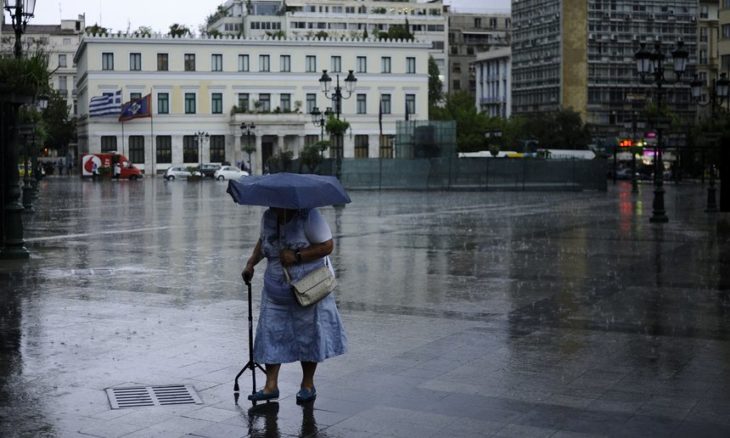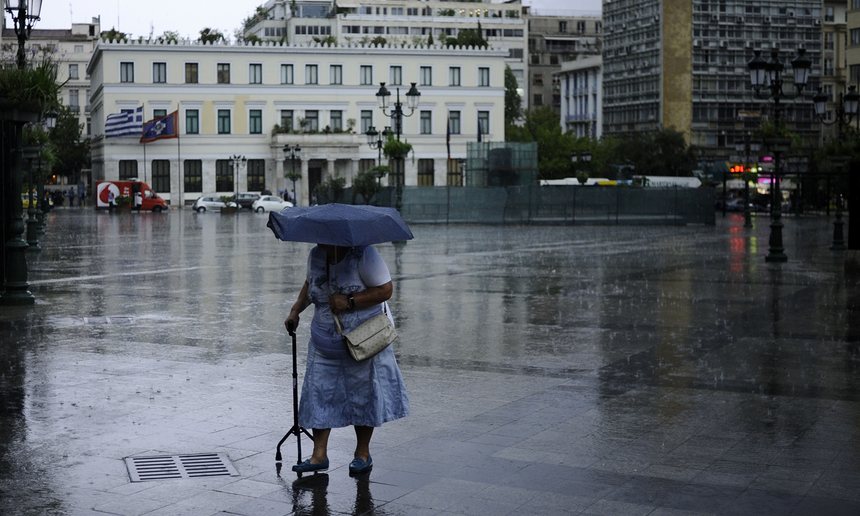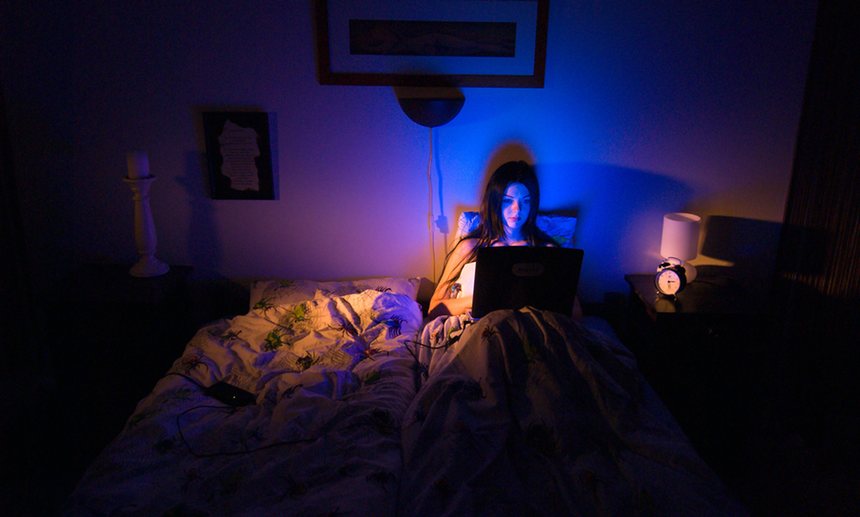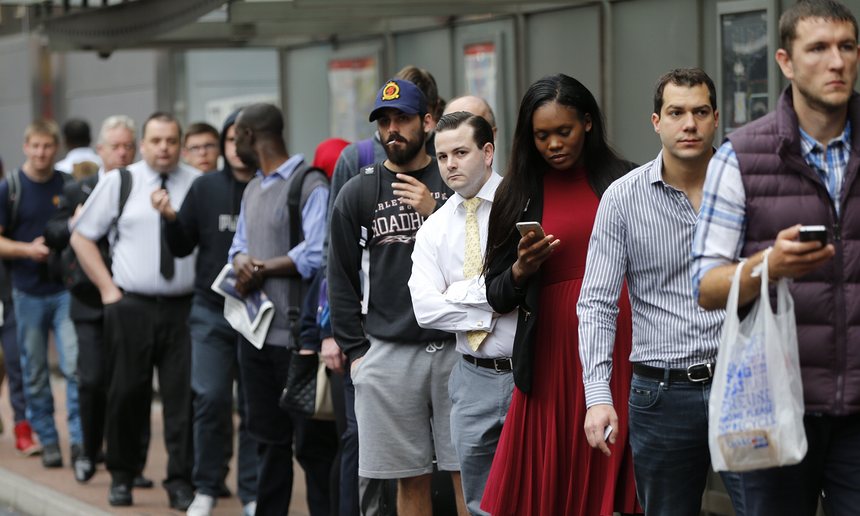
Cities Loneliness uncovered
‘My neighbour avoids me … I was very unhappy’:
your tales of urban loneliness
A new report suggests life in big cities can make people feel more lonely.
We asked you to share your stories, and heard experiences of both alienation and connection from Berlin to Vancouver

An elderly woman alone in Athens. ‘Having tried rural and city life, I’ve come to the conclusion that loneliness feels more pressing in a city environment.’ Photograph: Fotis Plegas G/AP
Guardian readers and Francesca Perry
Thursday 24 March 2016 07.28 EDT
Last modified on Thursday 24 March 2016 13.39 EDT
Are there aspects of city life that can heighten one’s feelings of loneliness? The charity network Acevo, which set up The Loneliness Project last year to tackle social isolation among young people in London, today publishes a report which suggests young Londoners are twice as likely to be lonely as their counterparts elsewhere in the country.
Young people surveyed for the report cited high housing costs, long working hours and the growth of social media as factors contributing to loneliness in the city. The report recommends, among other things, the establishment of a mayor’s Fund for Young People’s Resilience and Inclusion, worth £3.2m, to help ensure that young people build the necessary strong social connections to battle isolation.
How art helped me see the beauty in loneliness
But what about people of other ages, and in other cities? Last month, following the release of Olivia Laing’s new book The Lonely City, we asked you to share your own accounts of loneliness in urban environments, and whether you thought cities help make people more or less lonely. From Buenos Aires to Edinburgh and Helsinki, you responded with some wonderful stories – here are some of them. Thank you to everyone who contributed.
‘Cities are full of lonely people’
“Hectic lives don’t leave much time to connect with others around us at a basic humane level. Cities are full of lonely people who take it for granted that urban life is such that it simply disconnects people – a gross oxymoron in the age of social media. We are training ourselves to feel at ease chatting with a stranger when we interact with a screen, but we would not dare strike a conversation with a stranger at the bus stop.” (Anonymous Helsinki resident)
‘Starting again in a city can be really hard’
“Having tried both rural and city life, I’ve come to the conclusion that although you can experience loneliness in both, it feels more pressing in a city environment. I’ve just moved to a big city and I’m reminded again of how alienating it can be. When you’re approaching 50 and trying to ‘start again’ in a new place, it can be really hard. In a city it can feel like the whole world is out having fun, which makes you feel like a bit of loser.” (Polly, Edinburgh resident)
‘You’re connected to no one’
“Big cities are intimidating. The more people around you, the easier it is to get lost among them, to lose track of your own self. In big cities one can be completely busy doing so much and be left with little to no time to nurture any particular relationship or interest. Therefore, you’re living surrounded by people, but connected to no one.” (Gustavo, Chicago resident)
‘Living in a city makes me feel more alive’
“Living in a city makes me feel more connected and more alive than anything else. I lived in Newcastle for three years and was forced to move back home to a small town suburb for a year while I got a new job, and that year I was the most stressed I’ve ever been, because I felt like there was a barrier between myself and ‘everyone else’. I moved to the centre of Leeds in 2015, and there is no better feeling than being able to step outside your apartment and be in the middle of a hub.” (Beth, Leeds resident)
‘The high cost of living isolates me’
“I live alone and find that because I am poor I often feel lonely, particularly in the winter as I do not have the money to go out and socialise with friends. The high cost of living in London has isolated me from those who are able to afford a social life.” (Anonymous London resident)
‘The city had little to offer’
“Growing up in a city that had little to offer but decrepit playgrounds, underfunded schools and a sorry park, I spent most of my precious childhood at home staring at screens. Later, I was compelled to move out of the city and into a more suburban, almost rural place. After a rough phase of adaptation, I was overwhelmed with the cordiality that surged up on me. Within a year, I made dozens of friends, met the girl I now live with and developed a much more positive attitude.” (Donald Saunter, ex-Saarbrücken resident)

‘They were lonely months in which staying home on the internet became the norm.’ Photograph: Robert Matton AB/Alamy
‘The internet is both problem and solution’
“When I arrived in Barcelona, it took about six months to start to feel normal, and they were certainly lonely months, in which staying home on the internet became the norm. The internet was both problem and solution. Problematic because you can interact online and forget that you are not actually seeing real people, and solution because there are so many tools, for finding things to do and people to do them with. I remember for many, many months walking by groups of friends enjoying beers at outdoor bars and feeling incredibly isolated. I do sometimes wonder how many people are walking by me these days and feeling the same.” (Ruby, Barcelona resident)
‘There’s much more opportunity’
“City life makes people less lonely, because you can get around without a car and hence see and talk to your neighbours on the street. Also, there’s much more opportunity to go to things where you’re likely to meet like minded people – things like protest marches, galleries, theatre.” (62-year old Vancouver resident)
‘My neighbour avoids me’
“The friendliest person on my commute is a homeless man in the underground station who says good morning to me every day and now we know each other by name. This is in contrast to my next door neighbour who avoids me because I took him introducing himself to mean that he wanted a chat.”
“Based on the experience of foreigners like myself, I have come to the conclusion that Londoners carefully guard their social circles (maybe because they are so difficult to develop in the first place) and view openness and friendliness from strangers with mild suspicion. This doesn’t bother me now that I’m settled in but in the beginning I was very unhappy in what I thought was a cold, unfriendly city.” (Sarah, London resident)
‘The city is a five-star jail’
“I personally feel that NYC has become a more transient place rather than a community-building place. There’s no real sense of community left. The city has also become an investment haven for absentee foreign owners. It has also become a homogenised ‘Disneyland’ of sorts – imitating itself like the New York New York hotel/casino in Las Vegas. Another life-long New Yorker I know once referred to the city as a ‘five-star jail’ which I found to be pretty accurate. What can be more lonely than a jail?” (David, New York City resident)
‘City life was easier’
“As a relative newbie to my present home town I have struggled immensely with loneliness. City life was actually easier. There were clubs/groups to join that interested me and had like minded people. In smaller towns there is less choice and I feel people are more wary especially if they are established in their life.” (Anonymous)
‘Cities leave you unprotected and exposed’
“I have a thing for major cities, but they can be intimidating. While anonymity isn’t necessarily always bad, big cities do leave you somewhat unprotected and exposed. But part of that loneliness means cities are the ideal environment to discover yourself in your own light, without feeling like you are being watched or frowned upon, and really thrive.” (Juliana, Buenos Aires resident)
‘Their togetherness made me realise I was alone’
“I moved to Paris as a college student. I vividly remember one night coming back from classes. From the university, I took a bus to Place d’Italie. At the following stop the doors opened and many people got in, they were young, cheerful and were talking loudly. Their togetherness and that feeling of camaraderie made me painfully realise that I was alone in the city.” (Sandra, ex-Paris resident)
‘People have their heads down and ears plugged’
“The introduction of modern devices has stolen our eyes, ears, and mouths from other people in situations that may have otherwise garnered opportunity for connection. Airports, subway platforms, even waiting for a cup of coffee or checking out in the grocery line. To avoid feeling or appearing to be isolated or lonely, people occupy their few precious opportunities with their heads down and ears plugged, literally.” (Anonymous New York City resident)

‘We feel at ease chatting with a stranger online, but we wouldn’t dare strike up a conversation at the bus stop.’ Photograph: Tolga Akmen/LNP/REX/Shutterstock
‘Big cities can be a black hole’
“I will never forget that bus ride in Vienna on a chilly March afternoon. I wanted to get away from it all and decided to jump into just any bus that would take me far from the city’s concrete maze. Somehow I knew that that final stop would bring me some kind of relief. Don’t get me wrong, I loved and still love Vienna. I’ve experienced great things here, from crazy parties to romantic love stories. Yet it is perhaps because the city offered me so many things in the past that it is particularly painful to live here at present, when the people I shared these moments with are no longer a part of my life. I discovered that the city is a great place if you are happy, but it can be extremely daunting if you are sad.”
“On that day in March, I was feeling even gloomier than the weather. Vienna’s beautiful and majestic buildings ceased to impress me then. They were like a cold and bitter old lady who did not know what it meant to have a broken heart. I needed warmth of some kind. Jumping into a random bus was all I had. If we don’t have the comfort of at least one friend, pet or a partner, big cities can be a black hole where people fall in once in a while. It takes a very strong person to be alone in a big city and not feel lonely. A person to which I aspire.” (Anonymous Vienna resident)
‘I love the noise of the city’
“As an older person I value the ease of visiting cinemas, theatres, shops and the library without driving or organising a taxi. I love the noise of the city; when I lived in the country the silence depressed me. Moved to the city four years ago after 20 years in a small town and have had some of the best times in my life since.” (Anonymous Nice resident)
‘Berlin taught me to value loneliness’
“I moved to Berlin from Australia. Berlin has a special relationship with loneliness. Volatility and short-term layovers are a particular part of Berlin’s shtick: very few people stay in Berlin long-term. For this reason, it was easy to make friends in Berlin, but there was always an implicit understanding that the friendship was finite. This is a city of one-night stand intimacy.”
“I struggled with this initially, but it was never an uncomfortable loneliness. I felt a greater identification with the strangers around me, even though I tended to less interaction with them. An acquaintance observed that Berlin is a city where you go to be alone with other people. This resonated with my experience. Berlin taught me to value loneliness – something that is particularly difficult for my generation to understand, even as we have less real-world contact, and more artificial. In the thrall of social media and smartphones, we are drip-fed a steady supply of Instagram-filtered intimacy – and in this world, negative emotions and loneliness are taboo.” (Anonymous Berlin resident)
And some tips on how to beat urban loneliness…
“Join a gym and go to a class – great way to meet people. Go to one of the many, many evening cultural events that your library puts on. Join a political pressure group or charity that suits your outlook and go to the meetings. Even better, volunteer with a charity or festival and meet people that way. Car driving makes you lonely, so sell it and take sustainable transport.” (Anonymous Vancouver resident)
For the original article see here:

“Interpersonal communication and relationship is not better within family, either. Screens of televisions, computers and recently cell phones, have enslaved our generation.” Edip Yuksel

